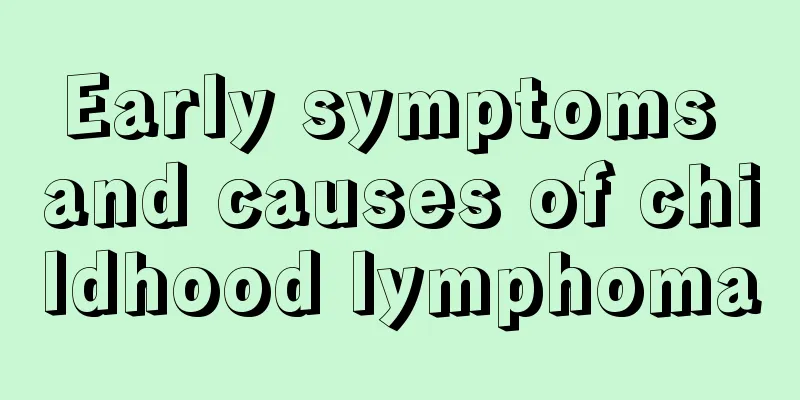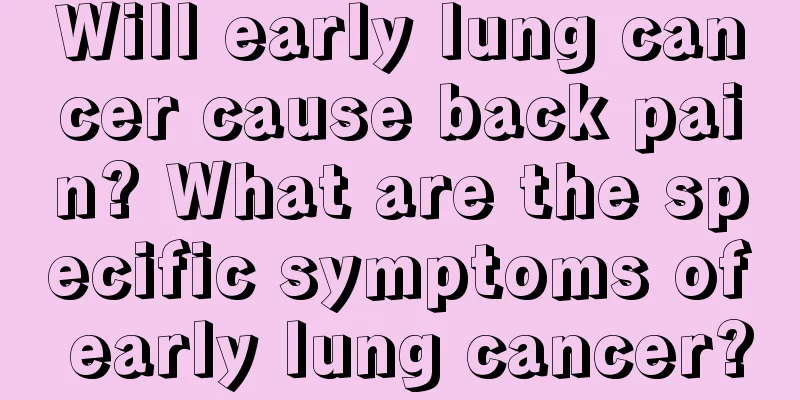What does drooling while sleeping indicate?

|
Drooling while sleeping may be caused by improper sleeping posture, such as sleeping on the table or sleeping on your side, which can easily cause drooling. But if this continues for a long time, it may be caused by some physical illness and requires attention.
Four factors cause drooling while sleeping 1. Poor oral hygiene The temperature and humidity in the mouth are most suitable for the reproduction of bacteria. The accumulation of food residues or sugar substances in the gaps between teeth and on the tooth surfaces can easily lead to caries and periodontal disease. Inflammation in the mouth increases saliva secretion. If the mouth is infected by bacteria, there will be obvious pain and drooling. Local medication is needed to promote ulcer healing and the drooling will disappear automatically. If you drool while sleeping, the drool tastes salty, and your pillowcase is light yellow, it is most likely due to poor oral hygiene, accumulation of food residues, and excessive tartar over time, which can cause gingivitis and even a small amount of bleeding gums. 2. Anterior Teeth Deformity Dental deformities can also cause drooling while sleeping. Especially for patients with convex tooth deformity, the front teeth protrude more obviously, and the lips are often open and the teeth are exposed. It is difficult for the lips to completely cover the front teeth when sleeping, and the upper and lower lips often separate naturally, which makes it easy to drool. It is best for such patients to correct their teeth as soon as possible. 3. Neuroregulatory disorders In addition to the above-mentioned oral problems, some systemic diseases may also cause drooling while sleeping. The regulation of saliva secretion is completely neuroreflexive. The so-called "looking at the plum to quench thirst" is an example of conditioned reflex saliva secretion. Therefore, disorders in neural regulation may also cause drooling while sleeping. Some patients with neurosis or other systemic diseases that may cause autonomic nervous system disorders may experience abnormal excitement of the parasympathetic nerves during sleep, which can cause the brain to send erroneous signals and lead to increased saliva secretion. 4. Drug Factors In addition, one of the side effects of taking certain anti-epileptic drugs is drooling, so you need to be careful when choosing drugs. What should adults do if they drool? First of all, you should not have any mental burden. Go to a regular hospital for a check-up and treat the primary disease of drooling, such as neurosis, oral inflammation, etc.; secondly, you should develop good eating habits, do not go to bed immediately after meals, do not eat too much for dinner or eat too much greasy, sticky and other indigestible food; thirdly, develop good hygiene habits such as rinsing your mouth after meals and brushing your teeth before going to bed to reduce the occurrence of oral inflammation. In addition, do not do strenuous exercise or overuse your brain before going to bed. |
<<: The "Fast Hair Growth" Law You Don't Know
>>: 10 signs of health from the tongue that indicate a serious illness is coming
Recommend
Why is sugar-free chewing gum sweet?
Chewing gum has become the darling of this societ...
What to do if lip bleaching causes scabbing and cracking
Everyone loves beauty, and most women want their ...
Symptoms of neurocostitis
Inflammation is a common condition in the human b...
How to fix baby diapers
Diapers are essential items for babies. They are ...
Can I drink coffee if I have a bad liver?
The liver can be said to be the largest organ in ...
What to do if forehead is too high
I wonder if you have noticed in life that people ...
What causes anal itching
Many friends may have experienced itchy anus in t...
What are scabies nodules
Scabies nodules are not common in daily life. The...
At what age does skin cancer first occur
What should I do if my face is ulcerated by skin ...
Are you aware of these 8 consequences of untreated hypothyroidism?
Many people in life are unfamiliar with the term ...
How can lung cancer be treated effectively
How can lung cancer be treated effectively? Lung ...
What to do if you eat maggots
In daily life, when we don’t want to cook, we wil...
Long-term exposure to secondhand smoke can increase the risk of laryngeal cancer
Grandma Li is 62 years old this year. She retired...
About dietary treatment of pancreatic cancer
Pancreatic cancer is a common pancreatic tumor. I...
Closed comedones on forehead
Closed comedones on the forehead are a common sym...









